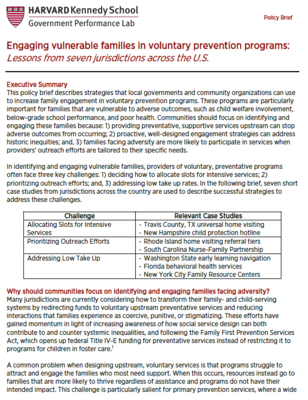Factors Affecting Parental Engagement
Understanding the Lived Experiences of Parents and Caregivers in Schools
Understanding the lived experiences of parents and caregivers in schools is essential for effective partnerships between families and educational institutions. These experiences, influenced by diverse backgrounds and multifaceted factors, shape perceptions of the school system.
Diverse Backgrounds and Experiences: Acknowledging and respecting the cultural, socioeconomic, and educational differences among parents and caregivers is critical for fostering inclusivity and equity within schools.
6 Strategies for Promoting Diversity and Inclusion in Your School
Effective Communication: Communication is pivotal; varied engagement levels require tailored communication channels and strategies to ensure all educational partners are engaged effectively.
Emotional Dynamics: Parents experience a range of emotions throughout their child’s educational journey. Understanding these dynamics helps schools provide appropriate support and resources.
Family guide to MTSS
Balancing Roles: Parents juggle roles as caregivers, workers, and advocates; schools must appreciate these demands and offer flexible involvement opportunities.
Valuing Lived Experiences: Recognizing and valuing the lived experiences of parents and caregivers in schools is fundamental for building collaborative partnerships that enhance student outcomes.
Historical Context of Schooling in the United States
Explore the historical inclusion and exclusion of parents in U.S. schools, highlighting key events and policies.
Early Colonial Period: Education was decentralized, with parents as primary educators; they actively participated in teaching and moral guidance.
19th Century Shift: The emergence of formal schools reduced parental involvement in educational decision-making.
Compulsory Education Laws: Late 19th-century laws mandated school attendance, increasing parental involvement in compliance.
Parent-Teacher Associations (PTAs): PTAs formed in the same era, connecting parents with school activities and advocating for their children’s education.
Civil Rights Movement: Parents became more active in advocating for educational equality, leading to desegregation efforts and increased parental engagement.
No Child Left Behind Act: Emphasized parental involvement as a cornerstone of school improvement in the 21st century.
Understanding this historical context helps educators and policymakers navigate the evolving landscape of education, fostering active parental engagement for the benefit of students.
Socio-political Factors Impacting Parental Engagement
Examine socio-political factors influencing parental roles in schools and the changing educational landscape.
Economic Disparities: Socioeconomic status affects parental engagement; addressing these disparities is vital.
Educational Policies: Government policies, such as the Every Student Succeeds Act (ESSA), outline expectations for family engagement.
Language and Cultural Diversity: Schools must be culturally responsive to involve parents from diverse backgrounds.
Culturally Responsive Parent Engagement
Technology and Communication: Digital platforms have made parental engagement more accessible; ensuring accessibility is crucial.
Community Resources: Availability of resources like after-school programs can enhance parental engagement.
Civic Engagement: Parental engagement is linked to civic participation.
Understanding and addressing these socio-political factors is vital for effective partnerships between schools and families, promoting student success, and closing educational gaps.


